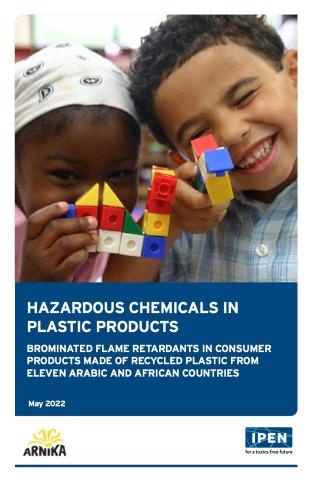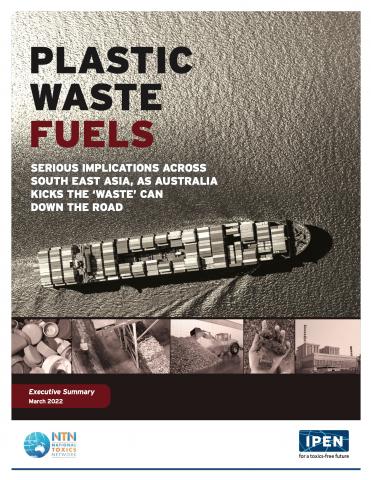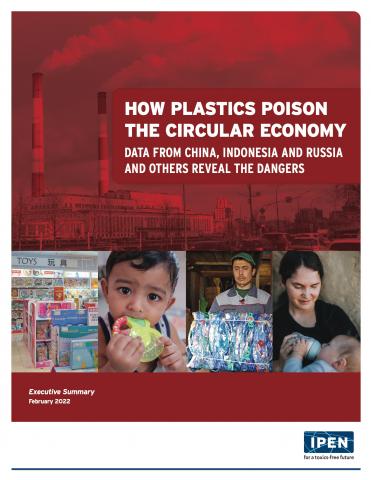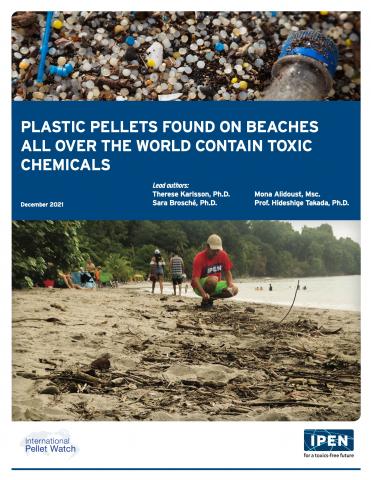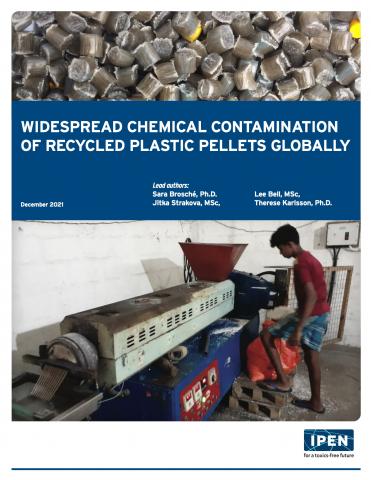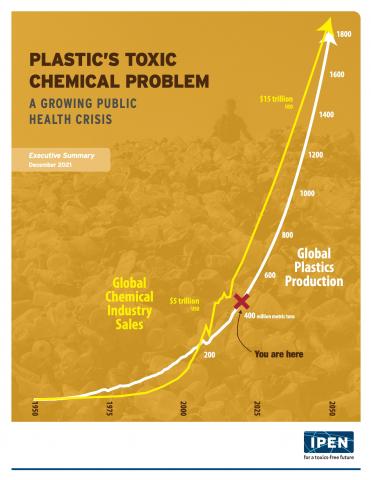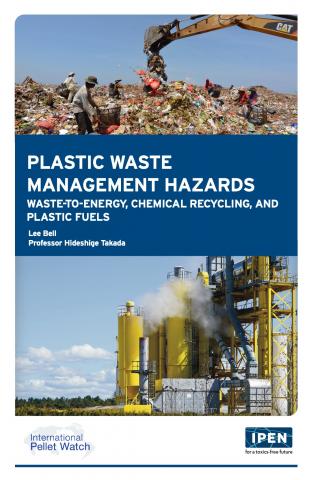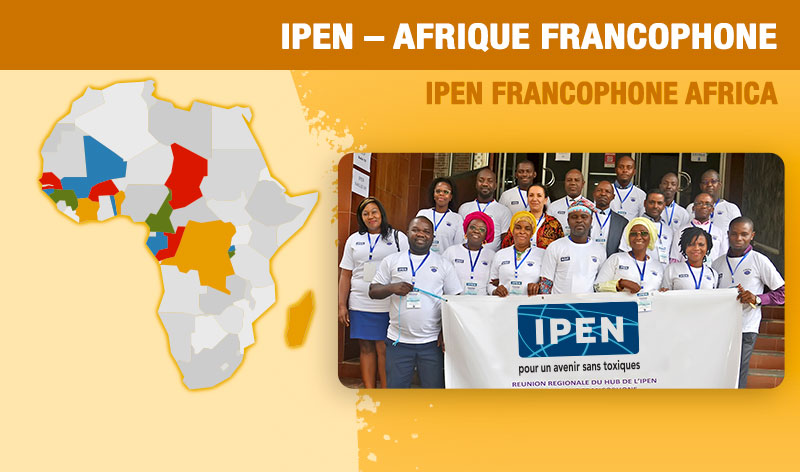
Top News

Vers une SAICM post 2020 : le processus intersession 4
L’un des moments critique durant le troisième trimestre de l’année en cours pour les artisans de la gestion rationnelle des produits chimiques et déchets dangereux fut la rencontre physique de la SAICM comptant pour le quatrième processus intersession (IP4).
Cette réunion tenue du 29 aout au 2 septembre dernier dans la capitale Roumaine à Bucarest à continuer à enrichir, à consolider les réflexions au sujet de la future SAICM ou SAICM post 2020.
Plusieurs Organisations Participantes de notre région ont pris part à ces travaux et contribué activement à façonner le futur cadre international qui devrait intégrer les réalités et spécifités africaine. A ce sujet, nous vous proposons de lire cette intervention d’une ONG régionale.
More News
Upcoming Events
- International Lead Poisoning Prevention Week, 23–29 October 2022
Check the IPEN Lead Paint page for updates in early October - Plastics Treaty INC 1, 28 November – 2 December 2022 (a multi-stakeholder forum will be organized on 26 November)
Location: Punta del Este, Maldonado, Uruguay
Check IPEN’s Plastics Treaty page for Quick Views and other updates in November
Recent Reports
Burundi: Burundi National Report on Highly Hazardous Pesticides (HHPs)
Chad: National awareness campaign on the plastic waste trade
Democratic Republic of the Congo: Les conséquences humaines et environnementales des produits chimiques et déchets dues à la pandémie du COVID-19 dans la ville de Bukavu et ses environs (COVID-19 Impacts on Chemicals and Wastes)
Mali: National Report on HHPs in Mali
Niger: Alternatives to Highly Hazardous Pesticides in Niger
Togo: National Report on Highly Hazardous Pesticides (HHPs) and Alternatives in Togo
Newest IPEN Reports
Hazardous Chemicals in Plastic Products
Both the environment in Africa and the Arabic region and the human health of Africans and people from Arabic countries suffer from toxic chemicals and imported wastes, including illegal wastes, more than in developed countries.
This study shows that toxic chemicals are present in toys, kitchen utensils, and other consumer products purchased from African and Arabic region markets in Burkina Faso, Cameroon, Egypt, Ethiopia, Gabon, Jordan, Kenya, Morocco, Syria, Tanzania, and Tunisia.
Plastic Waste Fuels
IPEN studies show how policy is driving massive investment in plastic waste-to-fuel processing, and that exports are threatening waste management in ASEAN countries and undermining the Basel Convention and climate change commitments.
Plastic Poisons the Circular Economy
IPEN published a number of studies showing significant obstacles for countries seeking to implement safe plastic circular economies. The studies reveal that countries are unable to handle large volumes of diverse plastics waste streams safely, and the reality that, without regulations requiring plastic ingredients to be labeled, countries are blindly allowing known toxic chemicals onto their markets in plastic products.
Plastic pellets found on beaches all over the world contain toxic chemicals
Preproduction plastics as pellets, or "nurdles", can carry many different chemicals, both those added to the plastics and pollutants that attach (sorb) to them in the environment. Often lost during production, transportation, and storage, pellets have been found on beaches all over the world since the 1970s. This study of plastic pellets gathered from beaches in 23 different countries contained many chemicals of concern, some in very high concentrations.
Widespread chemical contamination of recycled plastic pellets globally
Because almost all plastics contain toxic chemicals, recycling processes can perserve and can even generate toxic chemicals, such as dioxins. In this study, pellets made from recycled HDPE, intended for use in new products, were purchased from 24 recyclers in 23 countries and analyzed for 18 substances. The large number of toxic chemicals in many of the samples highlights the need to rethink recycling to ensure it does not perpetuate harms..
Plastic’s Toxic Chemical Problem: A Growing public health crisis
This summary of our two plastic pellets reports encapsulate the broad issues related to toxic chemicals in plastics and the concerns with recycling processes that can perserve or generate toxic chemicals.
Plastic Waste Management Hazards
Plastic waste has become an unprecedented pollution issue, blanketing our planet in the petrochemical remnants of plastic production. This report examines current and emerging methods by which plastic waste is managed globally and questions whether any of them present a solution to the rapidly accelerating generation of plastic waste. In short, they don't and the only long-term answer is to produce less plastic.
Regional Coordinator
Centre de Recherche et d’Education pour le Développement (CREPD)
Based in Cameroon
CREPD is a Cameroon-based NGO created in 2004 and is dedicated to bridge the gap between science and action in Cameroon and sub-Sahara Africa to promote sustainable development. The organization is instrumental in advising science-based informed decision and policy making processes, as well as the national development planning on “what is needed at grassroots levels” to enable sustainable development through daily sound management of chemicals and wastes, sustainable agriculture, and responsible mining. Many efforts are made to entail continuous capacity building through North-South collaborative research/activities (OK International, USA; BRI, USA; and Ashland University in Ohio, USA); and collaboration with national University through student internships and volunteering programs (ENSAI, University of Ngaoundere, Adamawa Region, Cameroon). CREPD has a consultative status with UNEP, is an active Participating Organization of IPEN and currently acts as IPEN’s Regional Hub Host for Francophone Africa. CREPD received the first prize of SAICM Award in 2013 for outstanding QSP project implementation in Africa.
Get our Newsletter
Video Highlight




